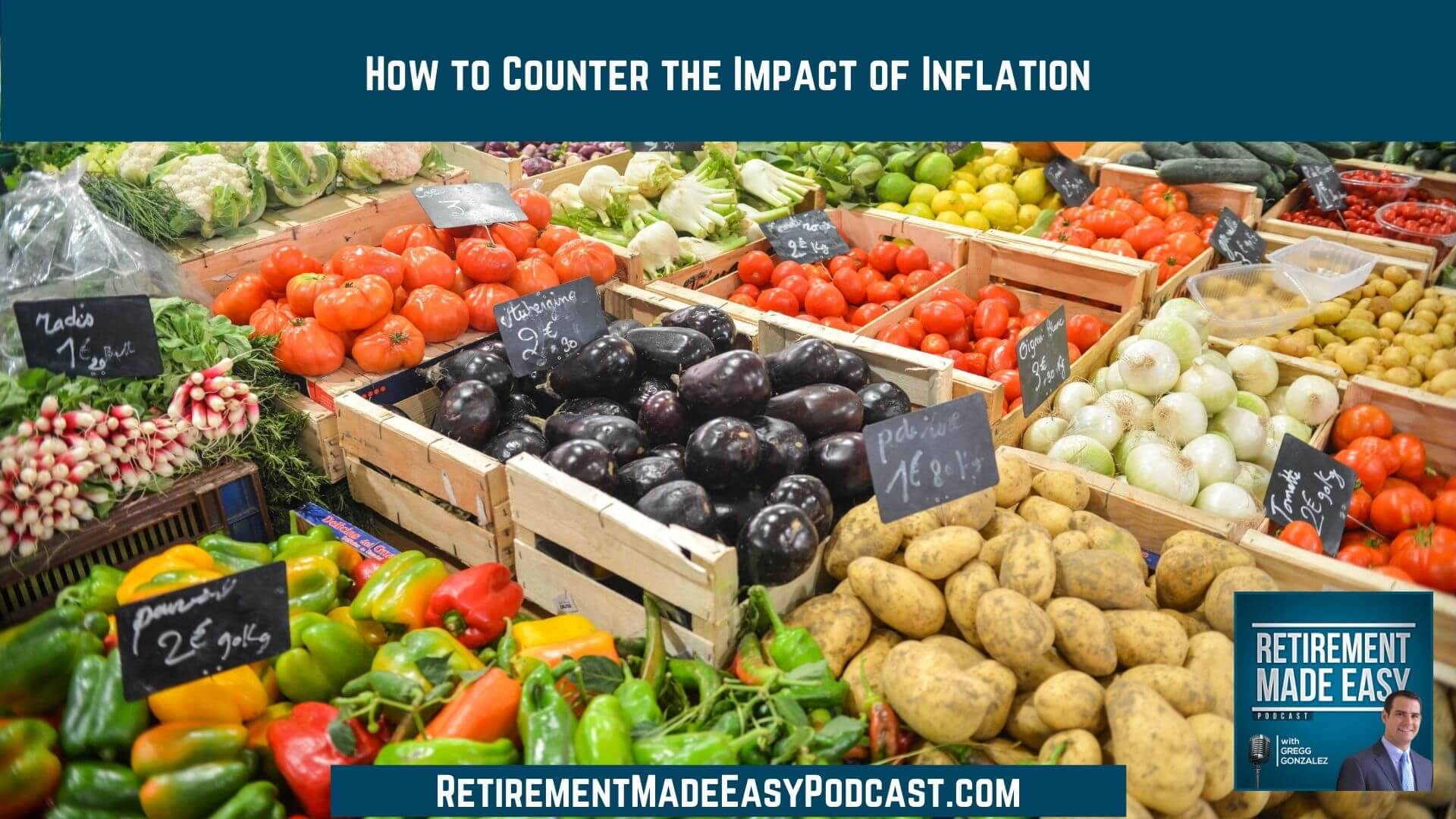
What is causing inflation concerns? What does it mean for the average retiree? What should you be doing to counter inflation? The cost of living is higher than ever. Unfortunately, inflation is here to stay. You need to be able to survive and pay for the increased cost of living. So you have to plan for it. What is the best way to do that? Learn more in this episode of Retirement Made Easy!
You will want to hear this episode if you are interested in…
- [2:41] Inflation: the cost of living
- [4:53] How inflation can be measured
- [7:47] Why inflation is higher than anticipated
- [13:31] The economy is playing catch-up
- [15:03] The biggest mistake people make
What inflation means for you
When people hear the word “inflation” they just think it’s an economic term that doesn’t apply to them. That couldn’t be further from the truth. Inflation is the rising cost of living. Over time, goods and services will cost more.
Inflation can be measured in a couple of different ways. The most common is the Consumer Price Index (CPI). The CPI measures a basket of goods that a household may buy, housing costs, and energy costs. In April 0f 2021, it increased 4.2% from April 2020. The average household’s expenses went up 4.2%—which is a lot.
Did you get a 4.2% increase in earnings during the same time? Unlikely. Many retirees live on a fixed income, such as a pension. The most dangerous retirement risk is trying to use a fixed income for 30+ years of retirement. Your cost of living will double if not triple. It’s financial suicide.
Your electric bill, utilities, groceries, healthcare, etc. all rise 2–4% every year. But your income stays fixed. The huge challenge is to come up with a retirement income that exceeds the cost of living. People are finally starting to see the impact on their lifestyle. It’s becoming so expensive to live and pay bills. You have to be aware of this. It won’t change, it will always be there.
Why is inflation higher than anticipated in 2021?
We currently have record-low interest rates because the FED cut interest rates throughout the pandemic. Doing this results in higher inflation and a higher cost of living. Throughout the pandemic, many factories and manufacturers shut down production because of COVID. It’s a supply and demand issue.
Brendan Murray, in the article “The World Economy is Suddenly Running Low on Everything,” said that everything from copper to cardboard to coffee is running low. A cardboard shortage restricts packaging, which can impact numerous products. These items are in low supply but high demand, which increases the price of everything. Hefty has already increased the price of their garbage bags a 3rd time in 2021 because the cost of plastic, rubber, and chemicals have all increased.
Companies are also struggling to hire because so many people are collecting unemployment on the sidelines. An insufficient workforce, expensive supply, and demand that’s through the roof lead to the necessity of increasing prices. They’re having to offer hiring incentives such as bonuses and higher wages which will increase prices even more.
The economy is playing catch-up
Overall, the economy is in catch-up mode. Manufacturers are trying to get back up to speed. Until lumber yards get their supply up to meet the demand, the prices won’t come back down. Who will suffer the most? The consumer. The consumer picks up the tab for all of this. Grocery bills will go up. Trips to Home Depot or Lowers will increase.
While you’re working, you need to be in a profession that can allow you to keep up or stay ahead of the rising cost of living (through raises, bonuses, promotions, etc.). Inflation is here to stay. Your earning ability needs to keep pace—including your retirement accounts.
The biggest mistake people make
Many people have bonds or CDs paying 0.05% to 1%. They’re trying to protect their principle. The problem is the purchasing power of that $10,000 is buying less and less every year. You’re slowly going broke. The goal is to have a retirement income that keeps up with the rising cost of living. Social security doesn’t keep up well. You can’t trust that it will keep up step by step with inflation.
Because social security only represents 30–40% of your retirement income, you have to come up with the rest. It has to come from pensions, retirement accounts, rental income, or business income. I have some clients with pensions that are fixed monthly pensions. They don’t have inflation protection. Your benefit will not increase with the cost of living.
What should you do? Listen to the whole episode for my recommendations!
Resources & People Mentioned
Connect With Gregg Gonzalez
- Email at: Gregg@RetireSTL.com
- Podcast: https://RetirementMadeEasyPodcast.com
- Website: https://StLouisFinancialAdvisor.com
- Follow Gregg on LinkedIn
- Follow Gregg on Facebook
- Follow Gregg on YouTube



